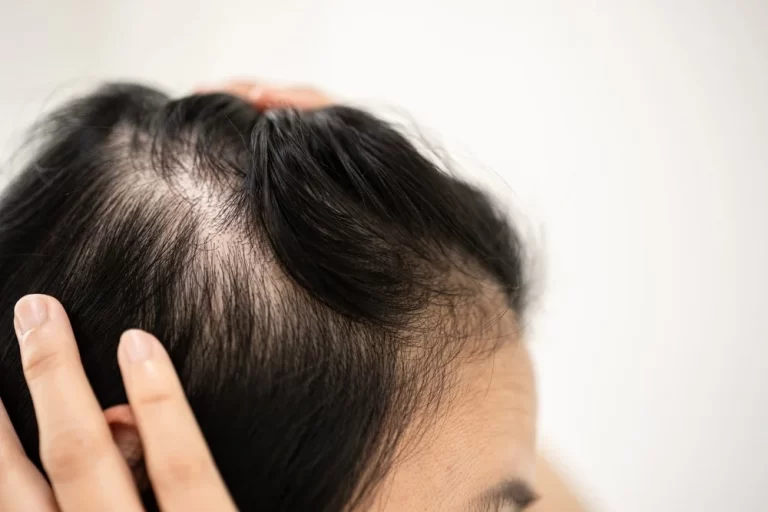Hair is often considered a crowning glory, a vital aspect of our appearance and a reflection of our overall health. However, various hair disorders can disrupt this natural asset, leading to distress and a loss of self-confidence. As a dermatologist, it’s essential to educate patients about common hair disorders, their causes, symptoms, and available treatments.
Common Hair Disorders
- Alopecia Areata: Alopecia areata is an autoimmune condition where the immune system mistakenly attacks hair follicles, leading to patchy hair loss on the scalp, face, and other areas of the body. The exact cause is unknown, but genetics and environmental factors may play a role. While the condition is not life-threatening, it can be emotionally challenging for those affected.
- Androgenetic Alopecia: Also known as male or female pattern baldness, androgenetic alopecia is the most common form of hair loss. It is a hereditary condition characterized by a gradual thinning of hair on the scalp. In men, it often results in a receding hairline and balding on the crown, while women typically experience diffuse thinning over the top of the scalp.
- Telogen Effluvium: Telogen effluvium is a temporary form of hair loss that occurs when a large number of hair follicles enter the resting (telogen) phase simultaneously. This can be triggered by various factors, including stress, illness, hormonal changes, and certain medications. Unlike other forms of hair loss, telogen effluvium usually resolves on its own once the underlying cause is addressed.
- Trichotillomania: Trichotillomania is a psychological condition characterized by an irresistible urge to pull out one’s hair, leading to noticeable hair loss. This disorder often starts in childhood or adolescence and can be triggered by stress or anxiety. Behavioral therapy is a common treatment approach for managing this condition.
- Scalp Infections: Infections such as tinea capitis (ringworm of the scalp) can lead to hair loss and scalp irritation. Fungal infections are common in children and can cause scaly patches, redness, and hair breakage. Antifungal medications are typically prescribed to treat these infections.
Symptoms of Hair Disorders
The symptoms of hair disorders vary depending on the underlying cause. Common signs include:
- Sudden or gradual hair thinning
- Patchy or diffuse hair loss
- Scaly or inflamed scalp
- Itching or tenderness in the affected area
- Noticeable hair shedding
Early diagnosis and treatment are crucial to prevent further hair loss and promote regrowth.
Treatments for Hair Disorders
Treatment options for hair disorders depend on the specific condition and its severity. Here are some common treatments:
- Medications:
- Minoxidil: Dermatologically prescribed topical treatment that stimulates hair growth and slows hair loss in androgenetic alopecia.
- Finasteride: A prescription oral medication for men and women of non-child-bearing age and those who have completed their families. It reduces hair loss by blocking the action of certain hormones 5 alpha reductase.
- Corticosteroids: Injectable or topical steroids used to treat alopecia areata only under dermatologist care and supervision.
- Hair Transplant Surgery: Hair transplant surgery involves moving hair follicles from the occipital area of the scalp to the thinning or balding areas of the scalp. This is a permanent solution for some types of hair loss, particularly androgenetic alopecia.
- Laser Therapy: Low-level laser therapy (LLLT) is a non-invasive treatment that uses red light to stimulate hair growth. It is believed to increase blood flow to hair follicles and enhance cellular activity.
- Psychological Support: For conditions like trichotillomania, behavioral therapy and counseling are essential to address the underlying psychological triggers and develop coping strategies.
- Lifestyle and Dietary Changes: Maintaining a healthy diet rich in vitamins and minerals, managing stress, and avoiding harsh hair treatments can improve overall hair health and reduce the risk of hair disorders.
Conclusion
Hair disorders can significantly impact a person’s quality of life, but with proper diagnosis and treatment, most conditions can be managed effectively. As dermatologists, it is our responsibility to provide comprehensive care and support to patients experiencing hair loss, guiding them through the available treatment options and helping them regain their confidence. If you or someone you know is struggling with a hair disorder, don’t hesitate to call Forever Yooung Clinic, one of the best hair clinic in Bandra, and take the first step towards healthier, fuller hair.


